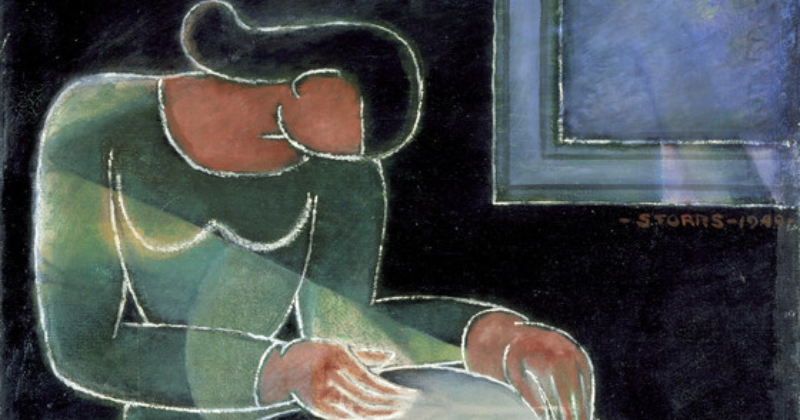My Author Photo Brought Me Face to Face With the Body I Hated
Kate Brody on Disappearing Into Words to Escape Her Body Dysmorphia
I’m on my third round of author photos now, which is two too many. For the first, I commissioned the cheapest person I could find. My agent needed a headshot for the London Book Fair, and I didn’t have anything. The photographer came by my house when I was eight months pregnant. I hired her for an hour, but after five minutes in the backyard, she said she had enough, I agreed, and she left.
I didn’t like the pictures. My neck looked thick. So I shot selfies on my phone, finding my own angles. I looked better—almost too good, like a Facetuned version of myself—but the Portrait Mode highlighted an old forehead scar. As I flicked through the images, I wondered if people might confuse evidence of a childhood accident for a deep wrinkle. I sent the best one to my agent.
Two months later, I tried again. I asked my sister—a recent college grad—if any of her arty friends were looking to make a buck, and she connected me to Henry, her roommate’s ex-boyfriend.
Henry was adorable—disarming and great with kids. After our author pictures, he shot extra frames on film: my older son with his new little brother, a three-week-old also named Henry. Those photos, when they arrived, were gorgeous.
So why then did I hate the pictures of me? I looked tired and stiff. My skin looked puffy. My breasts, engorged with milk, were enormous. I looked worse than I did when I was pregnant. But the real reason I hated them: I looked fat.
The narrative of my childhood was that I was big. I remember my parents wringing their hands about my pediatric charts, and the fact that I was off them. Even before I fully understood what that meant, I felt guilty about it. I was a child that liked to be good, and this was the worst kind of bad: sloppy, lazy, and undisciplined.
The one thing I felt confident about was my writing ability. From an early age, praised me for my work. My dad—who conducted his own weigh-ins, who signed waivers that let him force me onto the Stairmaster at his gym, who transparently despaired at the size and shape of my body—delighted in my vocabulary. And when we talked over dinner not about calories and portions but about language and stories, I basked in his approval. I had failed out of my mom’s Weight Watchers program, but I could excel with words.
Later, in college, I wrote med school and law school admissions essays for idiotic boys, making them sound considerate and smart; I edited other people’s papers and showed off by winning departmental awards; and I discovered fiction. Fiction was the first thing that I wrote for myself alone. It took one workshop, and I was hooked. I changed my post-grad plans and applied to MFA programs.
In my twenties, exhausted by a lifetime of working to make myself visually pleasing, I retired from the game entirely. I couldn’t unravel my body dysmorphia, so I opted, instead, to become a cloud of words, a brain in a jar.
I started to believe that people wouldn’t buy books with my face on the jacket … That the best use of my time before publication day was to spend my energy getting as hot as possible.It was 2015-ish, and so many friends were busy building platforms and profiles. Not me. The smugness I felt for eschewing a life of selfies! I would not be courting feedback on my appearance from enough strangers to fill a gymnasium. I would not be beholden to the unspoken rule of all visual media—that hotness counts. My face was not going to be how my bread was buttered, because I was going to be a writer.
Seven years later and 20 hours into a grueling 30-hour labor with my second child, feeling yet again betrayed by my corporeal form, I did it. Two offers came in on my debut novel, Rabbit Hole, a missing persons story that explored one woman’s descent into Internet-fueled madness. I was officially a writer.
But in the weeks that followed the sale, my body and my writing started to feel inextricably linked. Up until then, my fiction had been an escape from the self-loathing monologue that ran in the background of my mind. Now, the thing I had chased and defined as the pinnacle of creative success—publication—was threatening my refuge. It didn’t matter that it was on a very small scale or that the stakes were very low: I had made myself a public figure.
I let myself become convinced—by newsletter charlatans and Internet weirdos—that to be successful, I would have to be a brand. A trap and a lie, of course, but enough to awaken the voice that lived to hijack milestones and turn them into diet countdowns. I started to believe that people wouldn’t buy books with my face on the jacket. That writers I only just met online would feel deceived and horrified upon seeing me in person. That the best use of my time before publication day was to spend my energy getting as hot as possible. That this ridiculous effort would be for the book. It is embarrassing to write this. Embarrassingly unserious. But, at least in my experience, this voice is analogous to the voice of addiction—wily, seductive, and hard to explain in the cold light of day.
I fell down increasingly extreme Reddit rabbit holes, not dissimilar from the ones I had warned against in my novel. I “researched” Ozempic, jaw Botox, facial liposuction, gastric sleeve surgery, hearing only what I wanted to hear. I entertained the idea of mutilating my body and draining my bank account in my quest for authorial beauty. I even asked my doctor what could be done. This was after I’d already lost 30 pounds, thanks to rigorous breastfeeding that I was keeping up, in part, to keep my weight down. He laughed me out of the office: “You’re not a candidate.”
And, of course, my writing took a hit. Instead of drafting new material, I spent hours watching Reels, and I woke up each day feeling hungover, despite my sobriety. When the numbers on the scale plateaued—then ticked up—shame engulfed me. Not only was I fat, I was no longer a writer. A writer is someone who writes.
It used to be embarrassing to get caught staring in a mirror. People would snicker and make comments like, “admiring yourself?” Things have changed; people take photos of their own faces all day long, and it’s fine. I think it’s boring. But it is no less vain and boring to be as neurotic as I’d been, pathologically avoiding cameras and assuming everyone was thinking about my face and my body instead of their own.
I remembered that I don’t care what my favorite authors look like; that I often don’t even know.I knew I had to get ahold of myself. So I bought the jeans I was saving as a treat for when I got smaller. I cut off the long hair that had become a security blanket. I pivoted to using my new Instagram to message others writers and build community. I experienced the positive side of social media and was genuinely grateful to connect with so many kind and thoughtful readers. And I did what I always do—I mined it for material.
I forced my butt in the chair, and, steeped in my own bodily discomfort, I wrote. A second novel poured out, hour after ecstatic, painstaking, dissociative hour. And while it shared some DNA with Rabbit Hole—sisters, grief, downward mobility—it was critically its own, because it was, in many ways, the story of my body. Its characters limped onto the page, monstrous and broken. They were too fat and too thin and sick and mutilated and ashamed. A central conflict involved one woman weaponizing a camera lens against her sister, taking a photograph that is meant to humiliate her and then disseminating it widely.
I didn’t do any of this this consciously. But as I wrote, the obsessive voice in my brain turned outwards, towards ideas, words, and images, reconnecting me to the world. During the day, whenever I was alone, I thought not of my bodily failures but of the novel, working out kinks in the narrative as I showered and drove and cleaned. I finished the draft in record time—12 weeks.
When I came up for air, I felt like myself again. I remembered that I don’t care what my favorite authors look like; that I often don’t even know. I thought about Shirley Jackson—a brilliant writer whose mind was unnecessarily cluttered with anxiety about her body, whose weight-loss driven amphetamine use must have cost her work too. I thought about all the writers throughout history who have spent time wrestling their bodies instead of their manuscripts. The infuriating accumulation of wasted talent.
I think I was right to leave social media 10 years ago. I might have never written a book with all that noise in my head. This era of image and personal branding and better living through elective surgery can warp almost any creative pursuit into a beauty contest, if you’re not careful. Still, I don’t want to crawl back into a hole and be a brain in a jar. I think I’ve been wrong about at least as much as I was right about. There is some good out there. I want to foster the relationships I’ve begun. I want to see myself like my husband sees me, like my kids see me. I want to be well. I want to publish a book and put my face on the jacket because they both belong to me. And one day I’ll get there. But for now, most of all, I’d want to stay writing, where I always move like in a dream, light as air, swift as water.
_____________________________________
Kate Brody is a novelist living in Los Angeles. Her debut, Rabbit Hole, is forthcoming from Soho Crime (January 2024).




















